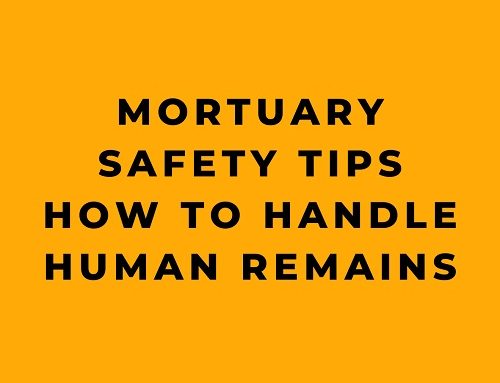Road rage is a serious problem on our roads and highways, leading to dangerous and sometimes deadly situations for drivers, passengers, and pedestrians alike. But what many people don’t realize is that road rage is often a symptom of underlying mental health issues. Understanding this connection is crucial for addressing and preventing road rage.
First, let’s define road rage. It’s not just a case of getting angry at another driver for cutting you off or tailgating. Road rage is defined as aggressive or violent behavior on the road, such as honking, tailgating, gesturing, or even physical assault. It’s a dangerous and unacceptable behavior that puts everyone on the road at risk.
So, what causes road rage? Stress, anxiety, and anger are common triggers. People who are dealing with these emotions may be more likely to lash out when they feel threatened or frustrated on the road. But it’s important to note that these are not the root causes of road rage. They are symptoms of underlying mental health conditions.
Depression, bipolar disorder, and post-traumatic stress disorder (PTSD) are just a few examples of mental health conditions that can lead to road rage. People with these conditions may have difficulty regulating their emotions, which can make them more prone to explosive outbursts while driving.
To address road rage, we must first address the underlying mental health issues. Seeking professional help for anger management, stress, or anxiety is an important step. A therapist or counselor can help you develop healthy coping mechanisms for these emotions. Mindfulness practices, such as meditation and yoga, can also be helpful in managing stress and anxiety.
For those dealing with depression, bipolar disorder, or PTSD, it’s crucial to work with a mental health professional to manage these conditions. Medication and therapy can help you regulate your emotions and improve your ability to handle stressful situations, such as driving on busy roads.
It’s important to remember that mental health conditions are not a choice and should not be stigmatized. Many people who experience road rage are not aware of the underlying cause and may not have access to the support they need. With understanding and compassion, we can help those who are struggling to get the help they need.
- Recognize that road rage is often a symptom of underlying mental health issues.
- Seek professional help for anger management, stress, or anxiety.
- Practice mindfulness techniques such as meditation and yoga to manage stress and anxiety.
- If you have been diagnosed with depression, bipolar disorder, or PTSD, work with a mental health professional to manage these conditions.
- Use medication and therapy to help regulate emotions and handle stressful situations.
- Avoid triggers such as heavy traffic, rush hour, or certain routes that tend to make you feel frustrated or stressed.
- Remember to take deep breaths and stay calm when dealing with difficult or aggressive drivers.
- Look for healthy ways to cope with stress and emotions such as going for a walk, reading, or listening to music.
- Avoid responding to aggressive behavior with aggression of your own. Instead, stay calm and maintain a safe distance from the other driver.
- Remember that mental health conditions are not a choice, and there is no shame in seeking help.
LEGAL CONSEQUENCES OF USING VIOLENCE DURING A ROAD RAGE INCIDENT
The legal consequences of using violence in a road rage incident can be severe. Depending on the jurisdiction, it can result in criminal charges such as assault, battery, or even attempted murder. In addition, a conviction for a violent road rage incident can result in severe fines, imprisonment, and a criminal record. It can also lead to a loss of driving privileges and civil lawsuits.
It’s also important to keep in mind that if an incident of road rage results in injury or death, the perpetrator can be charged with more serious offenses, such as manslaughter or murder. These charges can result in life imprisonment or death penalty.
It’s crucial to seek treatment if you are suffering from mental health issues, as it can prevent violent behavior. Not only it helps to prevent road rage incidents and protect yourself and others from harm, but it can also potentially prevent legal consequences. Seeking treatment can also help with other aspects of your life, such as improving relationships and your ability to handle stress.
Furthermore, if you are charged with a crime and have a history of mental health issues, it can be used as a mitigating factor in court and may result in a more lenient sentence. In addition, mental health treatment can be a condition of probation or parole, as well as a condition for the reinstatement of driving privileges, if applicable.
In short, using violence in a road rage incident can have severe legal consequences and it’s crucial to seek treatment for any mental health issues in order to prevent these incidents and protect yourself and others from harm, as well as potentially reducing legal consequences.
CONCLUSION
In conclusion, road rage is not just a case of a bad attitude on the road. It’s often a symptom of underlying mental health issues. By addressing these underlying issues, we can help reduce road rage and make our roads safer for everyone. If you’re struggling with road rage, don’t hesitate to seek professional help. Together, we can work towards a safer and healthier future on the road.
RESOURCES
- National Alliance on Mental Illness (NAMI): This organization provides support, resources, and education for people living with mental health conditions, including anger and violence related issues. They can be reached at 1-800-950-NAMI (6264) or by visiting their website at https://www.nami.org/
- American Psychological Association (APA): The APA provides resources for people dealing with mental health issues, including anger and violence-related issues. They can be reached by visiting their website at https://www.apa.org/topics/anger
Note: These are general resources, it’s always best to consult with a mental health professional or a physician to get tailored guidance and recommendations.
—
Does your company need driving safety training? Try our online training course:










